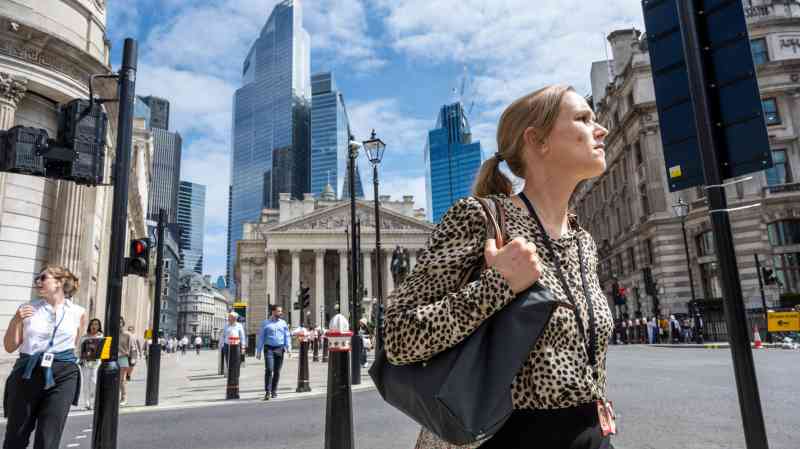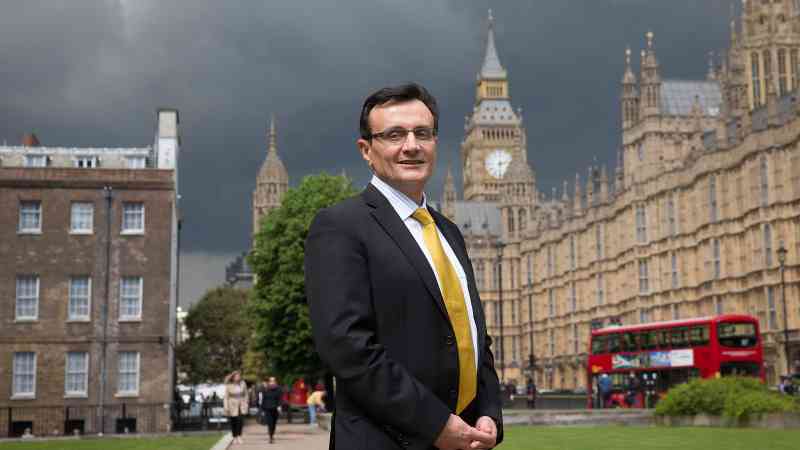Investment app sinks after failure to repay loan
The taxpayer is expected to lose the majority of its investment in a start-up backed by Jorginho, the Arsenal footballer, which collapsed after it failed to repay a pandemic loan.
The company behind Gather, an app that provides access to funds from asset managers including BlackRock, entered administration after it misunderstood the government’s approach to the Future Fund scheme, according to insolvency filings.
Directors of Gather International, the owner of the app, thought their £3.2 million loan from the emergency programme, half of which came from taxpayers, would convert into equity at the end of its term, the company’s administrator said.
Future Fund debt converts to equity in the event that fresh qualifying finance is raised. If not, the Future Fund has the option to ask for the loan to be repaid with a 100 per cent “redemption premium” when the loan matures, effectively doubling the debt.
Chris Andersen, the administrator, said the “company did not appreciate the Future Fund had adopted [a] hard line policy” of seeking repayment of the loan at the end of its three-year term rather than allowing a conversion to equity, putting the company in a “very difficult financial position”. He said that the “significance” of correspondence from the Future Fund confirming that it was seeking repayment “appears to have escaped the directors”.
Gather was placed into administration at the end of May by its directors after a winding up petition was issued by the Future Fund in April.
The company was founded in 2019 by Giovanni Bonaccorso, an Italian entrepreneur and former Goldman Sachs banker, and was launched to the public last year, with £5.2 million invested in the app’s development and marketing. It is aimed at young, everyday investors and its design is influenced by the accessibility of music and video streaming services. Investments can start at as little as £30 and customers can follow others users’ investment choices.
Jorginho, 32, the Arsenal and Italy midfielder, owns nearly 5 per cent of the business, according to filings. He said last year that he wanted to set an example to young football players who did not think about the future when they start making money.

Gather had been seeking an agreement with the government over an extension of the loan in order to rescue the company as a going concern. It is understood that this has been rejected.
A spokeswoman for the government’s British Business Bank, which runs the Future Fund, said that loan extensions were subject to conditions, including “timeliness of extension requests, satisfactory and transparent responses to due diligence checks and confirmation from directors that the company would be able to pay its debts as they fall due following the extension. We do not comment on individual cases.”
Andersen, of AABRS, an insolvency firm, wrote that in the event that the bank rejected an extension, the company’s assets were likely to be marketed for sale. The administrator warned that unsecured creditors of Gather, including the Future Fund, could be repaid as little as 3.44p in the pound.
The Future Fund was a pandemic programme that was supposed to support innovative companies by providing them with government loans that were match-funded by the private sector. The British Business Bank said last week that it was “cautiously optimistic that the portfolio will return a positive return to the taxpayer”. Loan extension requests had been rejected in only a small number of cases, it indicated.
Andersen, AABRS and Gather did not respond to invitations to comment.






